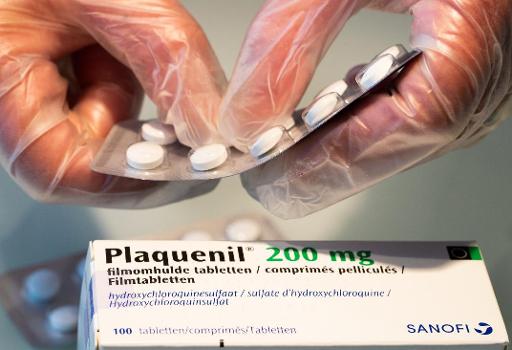Belgian researchers have found a way to ensure a safe dosage of hydroxychloroquine, a drug currently being used to treat coronavirus patients.
The drug which is being used in the absence of a known cure for the new coronavirus (Covid-19) can lead to dangerous eye and heart effects if it reaches too high concentrations in the blood.
Through their research, biochemists at the University Hospital Laboratory of Brussels (LHUB-ULB) have developed a dosage method that uses blood tests to ensure that patients are administered a safe amount of the drug, which is normally used to prevent and treat malaria.
"You have to be within the therapeutic range," said the head of LHUB-ULB's medicinal chemistry department, Frédéric Cotton. "Above this level, it is toxic and below it, ineffective," he explained. The doses used to treat coronavirus are sometimes higher than the normal range for the drug, leading to an inherent risk of toxicity, he added.
This is made more complex by the fact that two patients receiving the same dose can have different concentrations in their blood, meaning the dosage must be determined on an individual basis.
Related News
- Belgium defends its pandemic management
- Coronavirus enters via two cells in the nose, researchers find
To find the right dosage, "we examine the blood of patients on the 2nd and 5th days of their treatment," Cotton explained. If the concentration in the blood is too high, clinicians will reduce the dose or stop the treatment.
"But for the time being, we don't dare increase if the concentration is below the therapeutic range. We're not sure it's the right treatment. We're not going to give potentially toxic doses," said Maya Hites, an infectious disease expert at Brussels' Erasmus Hospital.
The effectiveness of hydroxychloroquine against coronavirus has not been proven. In fact, there is currently no known cure for the virus. The dosage is not based on clinical data observed in the human body, but on a theoretical model extrapolated from in vitro tests.
The Brussels Times

